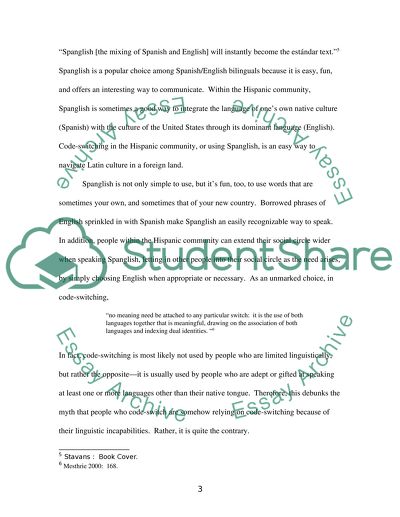Cite this document
(Is Code-Switching: Limited Linguistic Knowledge, or a Useful Discourse Essay, n.d.)
Is Code-Switching: Limited Linguistic Knowledge, or a Useful Discourse Essay. Retrieved from https://studentshare.org/english/1551075-sociolinguistics-subjectenglish-language
Is Code-Switching: Limited Linguistic Knowledge, or a Useful Discourse Essay. Retrieved from https://studentshare.org/english/1551075-sociolinguistics-subjectenglish-language
(Is Code-Switching: Limited Linguistic Knowledge, or a Useful Discourse Essay)
Is Code-Switching: Limited Linguistic Knowledge, or a Useful Discourse Essay. https://studentshare.org/english/1551075-sociolinguistics-subjectenglish-language.
Is Code-Switching: Limited Linguistic Knowledge, or a Useful Discourse Essay. https://studentshare.org/english/1551075-sociolinguistics-subjectenglish-language.
“Is Code-Switching: Limited Linguistic Knowledge, or a Useful Discourse Essay”. https://studentshare.org/english/1551075-sociolinguistics-subjectenglish-language.


